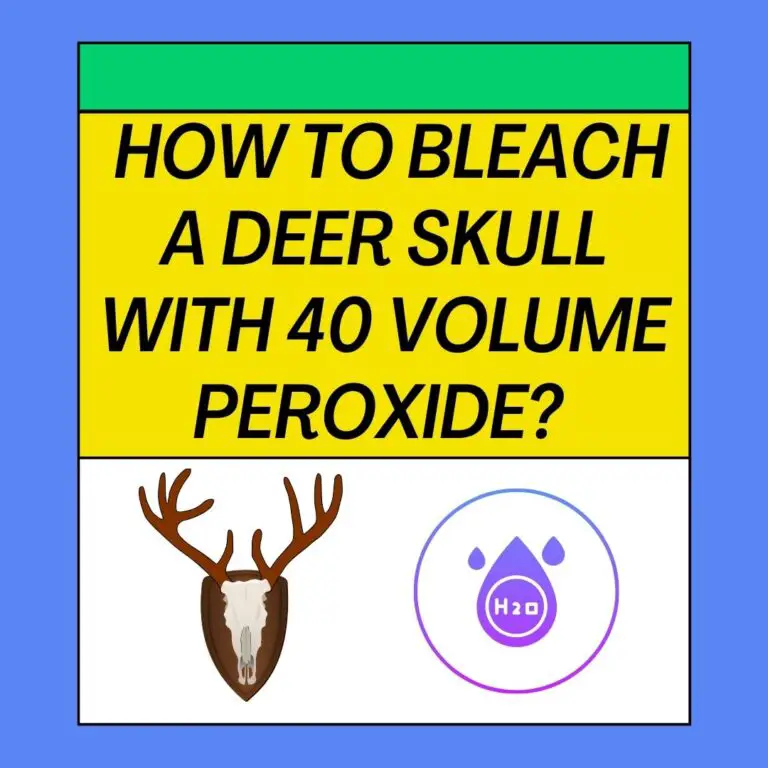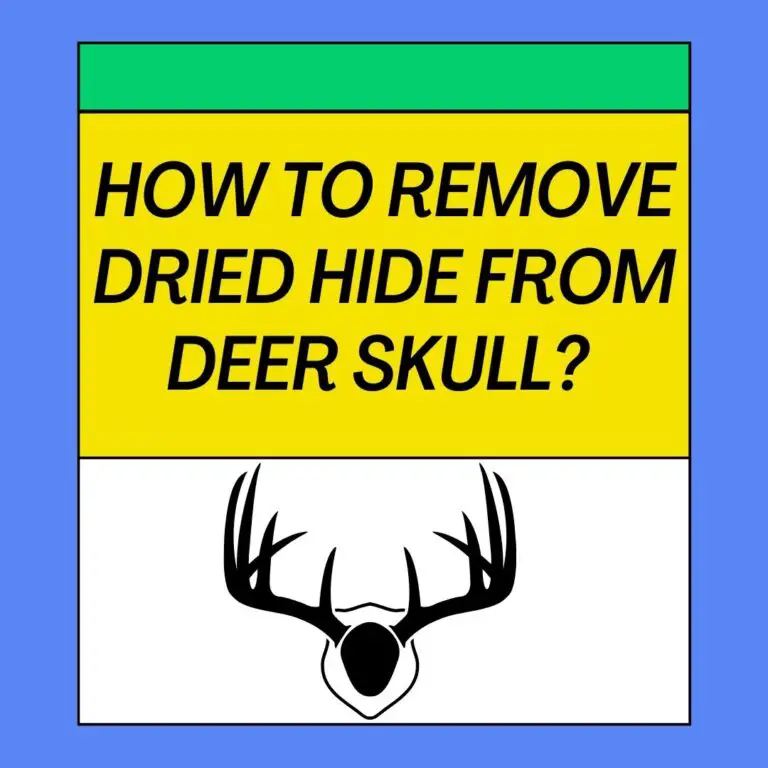
Bleaching a deer skull with Clorox (sodium hypochlorite) is a popular method used to achieve a clean, bone-white appearance for decorative or artistic purposes. However, it’s important to note that working with bleach requires safety precautions. In this comprehensive guide, we’ll cover how to bleach a deer skull with Clorox, along with frequently asked questions (FAQs) to help you achieve the best results while ensuring safety.
Materials You’ll Need:
- Deer skull
- Clorox bleach (household bleach)
- Plastic container or tub (large enough to submerge the skull)
- Safety goggles
- Rubber gloves
- Old clothes or an apron (to protect clothing)
- Soft-bristle brush (toothbrush works well)
- Plastic sheet or tarp (to protect your work area)
- Timer or clock
- Water
Safety Precautions:
- Ventilation: Work in a well-ventilated area to minimize inhaling bleach fumes.
- Protection: Always wear safety goggles and rubber gloves when working with bleach. Bleach can irritate the skin and eyes.
- Children and Pets: Keep children and pets away from the work area.
- Clothing: Bleach may bleach fabric, so wear old clothes or an apron that you don’t mind getting stained.
Step-by-Step Guide: How to Bleach a Deer Skull with Clorox
1. Prepare Your Work Area:
- Lay down a plastic sheet or tarp to protect the surface you’ll be working on.
2. Remove Flesh and Tissue:
- In the field, remove as much flesh and tissue as possible from the deer skull. This minimizes odor during the bleaching process.
- Use a knife to carefully remove the hide, ears, and eyes.
- Dispose of any scraps in a secure trash bag to prevent attracting pests.
3. Mix the Bleach Solution:
- Fill a plastic container or tub with warm water.
- Add Clorox bleach to the water. The ratio typically used is about 1 part bleach to 3-4 parts water. You can adjust the concentration based on your preference, but avoid using undiluted bleach, as it can be too harsh on the bone.
- Stir the solution until the bleach is fully mixed.
4. Submerge the Skull:
- Gently place the cleaned deer skull into the bleach solution. Ensure it’s fully submerged.
5. Soak the Skull:
- Allow the skull to soak in the bleach solution. The duration of the soak depends on the degree of discoloration and the desired level of whiteness. A typical soak time is 24-48 hours.
6. Check Progress:
- Check the skull periodically to gauge the progress. You’ll notice the water turning brown as it absorbs impurities from the skull.
7. Scrub if Necessary:
- After soaking, use a soft-bristle brush (a toothbrush works well) to gently scrub away any remaining discoloration or stains.
8. Rinse Thoroughly:
- Rinse the skull thoroughly with water to remove any remaining bleach residue. This step is crucial to prevent the skull from continuing to bleach and becoming brittle.
9. Dry the Skull:
- Pat the skull dry with a clean cloth or towel. Allow it to air dry completely. This may take a few days.
10. Final Touches: – Once the skull is dry, you can apply a clear sealant or lacquer to protect it and give it a glossy finish, if desired.
FAQs:
1. Can I use Clorox bleach on antlers?
- Yes, you can use Clorox bleach on antlers as well as the skull. Follow the same process for both.
2. How long does it take to bleach a deer skull with Clorox?
- The time required varies based on the initial discoloration and desired whiteness. It can take 24-48 hours of soaking.
3. Can I reuse the bleach solution?
- It’s best to discard the solution after use and create a fresh mixture for each bleaching session for optimal results.
4. Can I use this method for older, more discolored skulls?
- Clorox bleach is effective for most staining and discoloration. However, very old and heavily stained skulls may require longer soaking times or additional treatments.
5. Can I add hydrogen peroxide to the bleach solution for better results?
- Some people choose to add hydrogen peroxide to the bleach solution for an extra whitening boost. However, this should be done with caution, as it can weaken the bone if overused. If you choose to do this, start with a small amount and monitor the progress closely.
6. Can I bleach other animal skulls with Clorox?
- Yes, you can bleach the skulls of various animals using this method. Adjust the process based on the size and type of the skull.
Summary
Bleaching a deer skull with Clorox can yield impressive results when done correctly. Regular maintenance and proper storage will help keep your bleached skull in excellent condition for display or artistic projects.






